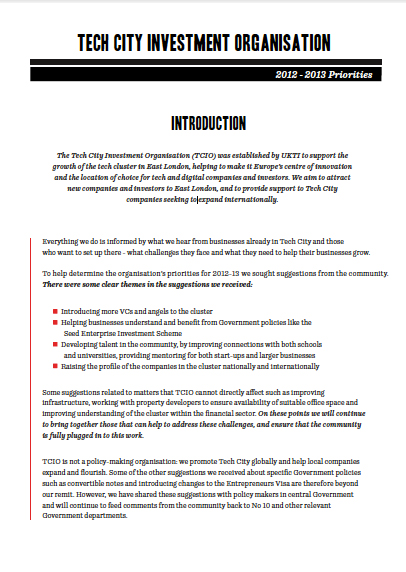Our latest guest blog looks at the lessons startups can learn from a military background, and comes courtesy of James Swanston, of East London startup Carbon Voyage. As a former member of the armed forces, James shares his thoughts on how to apply those learnings to his current entrepreneurial career…
The topic of leadership is very important in the army, as it is for any start-up enterprise. Actually, start-ups are a bit like military operations – high pressure environments, uncertainty, resource constraints, adversaries and so on.
The experiences of being in the military can provide invaluable lessons for start-ups, some of which I’d like to share below as someone who has now left the army and is running a business.
No plan survives first contact with the enemy (pivoting)
Flexibility is a key principle of military engagement. The enemy will not always do what you expect, or what you wish they would, and you will rarely have the resources you need or want. Having a plan is great to draw out possible issues but focusing on developing a plan at the expense of delivery can be just as bad.
A point also exists where you just need to go on and complete the mission even if the situation isn’t perfect.
Similarly, start-ups have to be flexible and able to deal with the realities of a live product or service because until you reach that stage, everything is purely hypothetical.
Being a leader and making decisions
Leadership can be tough, as can be trying to even define what leadership is all about. What is really tough though is that ultimately you need to have moral courage to make hard decisions. In the army, this means sending people in to harm’s way and sometimes doing things that you don’t want to do but know you have to. Running a start-up is precisely the same, and if you can’t be a leader, then you really shouldn’t be in charge.
Mentors
Young officers are assigned a mentor when they command a platoon of thirty soldiers – it’s called a sergeant. The sergeant is very important in helping the less experienced but highly enthusiastic platoon commander learn the ropes and stay out of trouble.
When I had my first business in Australia, I didn’t have a mentor and that was quite an oversight. Find someone with experience that you trust and listen to them – it can make all the difference.
Perspective
Running a start-up and being innovative is a really great and rewarding experience and there is no way that I would want to do a “normal” job. However, it is also true that start-ups can be challenging, and risk becoming a “million dollar MBA” if it all goes wrong.
But even when things go wrong, it never comes close to when things go wrong in battle. Remembering this helps, even if you haven’t been there.
The other great thing about having this perspective is that it also highlights that you should do something that you love doing. Life is too short to do otherwise!
I and others I know have had to learn a lot of these tips the hard way – hopefully you will be able to learn from my experience.
James Swanston is founder of Carbon Voyage, a company that helps travellers get from A to B without costing the earth. Prior to that, he served in the Australian and British Armies with service in East Timor, Iraq, Afghanistan (and a few other places). A slightly different version of this post first appeared on Shift Business.





